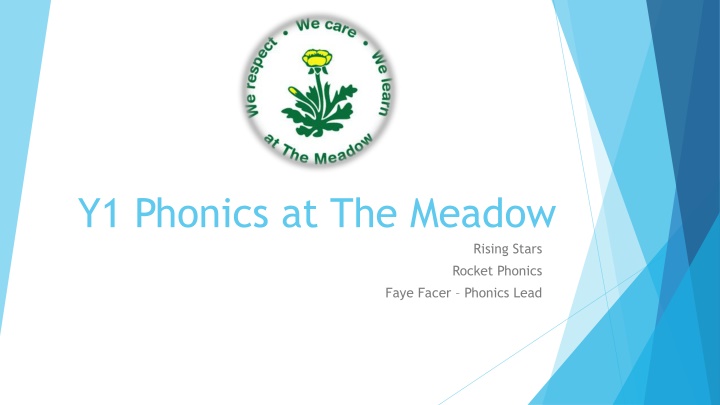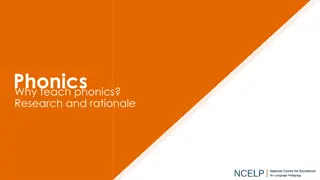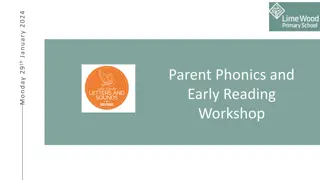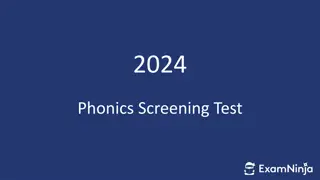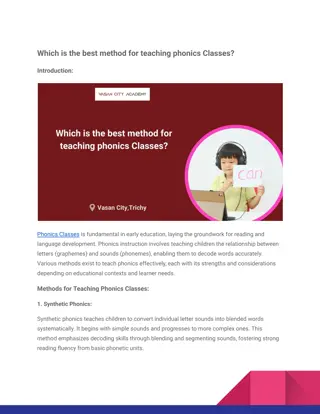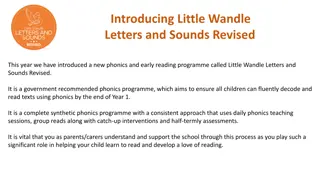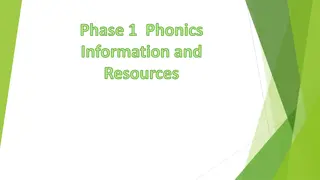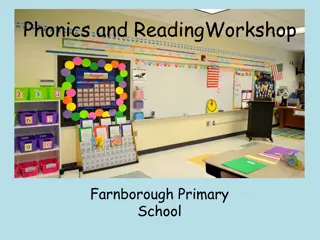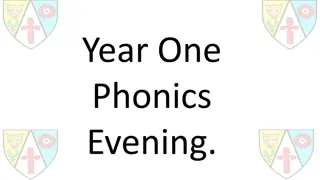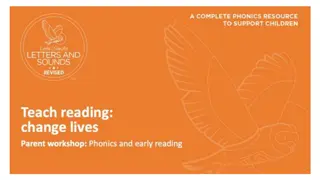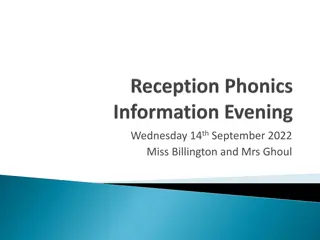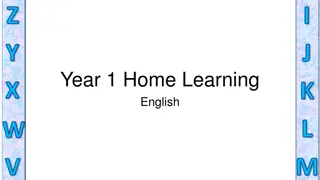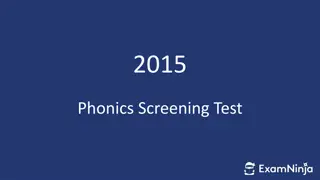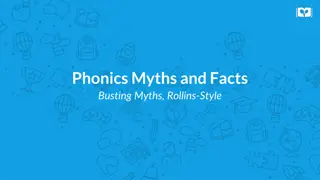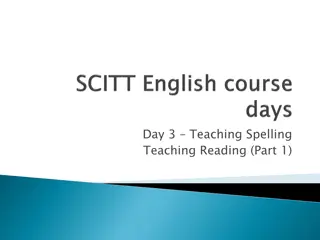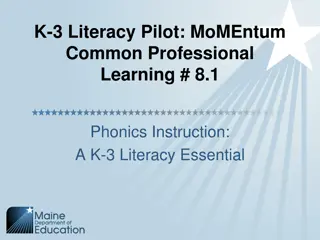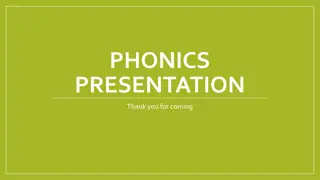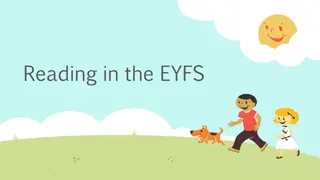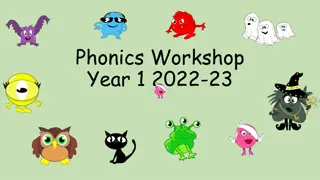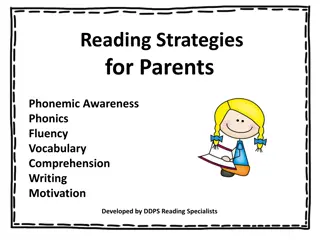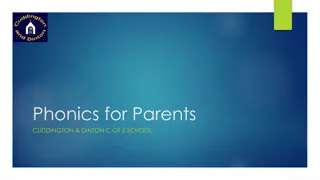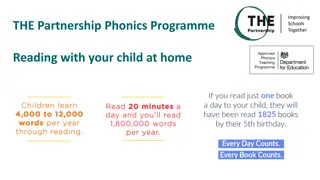Phonics: Teaching Strategies for Reading Success
Phonics is a crucial strategy in teaching children to read. It complements other methods like Guided Reading to develop essential reading skills and foster a love for reading. Explore phases, terminology, activities, and screening tests related to phonics.
Download Presentation

Please find below an Image/Link to download the presentation.
The content on the website is provided AS IS for your information and personal use only. It may not be sold, licensed, or shared on other websites without obtaining consent from the author.If you encounter any issues during the download, it is possible that the publisher has removed the file from their server.
You are allowed to download the files provided on this website for personal or commercial use, subject to the condition that they are used lawfully. All files are the property of their respective owners.
The content on the website is provided AS IS for your information and personal use only. It may not be sold, licensed, or shared on other websites without obtaining consent from the author.
E N D
Presentation Transcript
Y1 Phonics at The Meadow Rising Stars Rocket Phonics Faye Facer Phonics Lead
What is phonics? Phonics is recommended as the first strategy that children should be taught in helping them learn to read. It runs alongside other teaching methods such as Guided Reading and Shared Reading to help children develop all the other vital reading skills and hopefully give them a real love of reading.
What does phonics look like? There are 6 phases which are taught from Nursery to Year 2 Phase 1 Preschool/Reception Phase 2 - Reception Phase 3 - Reception Phase 4 - Reception Phase 5 Year 1 Phase 6 Year 2 Phonics sessions take place everyday for 30 minutes. Children are assessed regularly and grouped accordingly to their understanding. We use phonics planning for the DFE approved scheme, Rocket Phonics Children are exposed to and encouraged to use the correct terminology i.e. phoneme, digraph , trigraph etc
Activity terminology matching Can you match the correct word to its meaning?
Terminology Word Definition Phoneme A single sound that can be made by one or more letters Example: s, t, ph, wh Digraph Trigraph Two letters that make one sound Example: er, oi, ay Three letters which go together to make one sound. Example: ear, air, igh Split digraph Two letters which work together to make one sound. These sounds are not next to one another. Example: like, name, home. Blending Saying the individual sounds that make up a word and then blending the sounds together to say the word orally. Example: c/a/t cat Segmenting Splitting a word up into individual sounds. Example: sat s/a/t Grapheme Written letters or a group of letters which represent one single sound. Example: a, b, c, d, e
Reminder of the importance of clear articulation https://home.oxfordowl.co.uk/phonics-videos/#animation https://www.risingstars-uk.com/media/Rising-Stars/Reading/Rocket-Phonics- progression-chart_1.pdf
Sound buttons and phoneme identification Rain Skate Home Spray Hear Light
Phonics screening test Children in Year 1 will usually take part in the phonics screening check in June. The test will contain real and pseudo words for the children to read.
Sound buttons and phoneme identification Zorbs Jigh Thobe Dirst Toin Zale
Reporting to parents Parents will receive their child s result and details of the pass mark in their report. The previous pass mark has been 32/40, this is subject to change each year. Children who do not achieve the expected level will receive extra support and retake the test in Year 2.
How you can help at home Take turns to sound out a range of words, it is important to model the process. Read as much as possible to and with your child, encouraging sounding out unfamiliar words. If your child is struggling to decode a word, help them by encouraging them to say each sound in the word from left to right and model how to use sound buttons. Blend the sounds by pointing to each one, e.g. /s/ in sing, /i/ sing, /ng/ in sing. Next move your finger under the whole word as you say it. Discuss the meaning of words if your child does not know what they have read. Help your child complete any phonic/spelling shed homework set. Be playful with words and make it an enjoyable experience
Useful websites and links https://www.phonicsplay.co.uk/ https://www.bbc.co.uk/bitesize/topics/zvq9bdm /articles/zgnrf82 https://ictgames.com/mobilePage/literacy.html https://www.galacticphonics.com/#google_vignet te https://www.gov.uk/government/collections/nati onal-curriculum-assessments-practice-materials
Thank you! Any questions?
